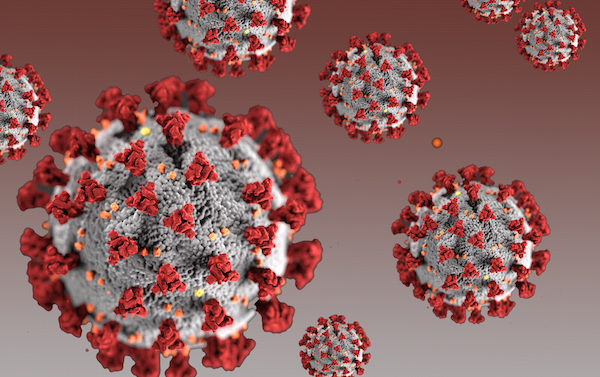Northeast Health District Director Stephen Goggans painted a rosy picture of Georgia’s COVID-19 pandemic for Athens-Clarke County commissioners at their work session last week.
After a “massive peak” in July and August, “fortunately, the state has seen a decline in average case numbers,” from about 4,000 a day to 2,000, Goggans said. “It definitely has improved.”
Look closely, though. Clarke County is moving in the opposite direction—a fact commissioners were quick to point out. It took Clarke County more than four months to hit 1,000 cases. Now, it’s adding about 1,000 cases a week. Clarke crossed the 3,000-case mark on Sept. 1. As of Sept. 12, cumulative cases stood at 4,430. Cases per 100,000 people over the past 14 days were 1,261 and rising, nearly quadruple the number before UGA students returned to town. For reference, the Clarke County School District has set a benchmark of 175 per 100,000 before elementary school students can safely start returning to classrooms.
“It’s clearly driven by the college age bracket,” Commissioner Melissa Link said. “It’s becoming crystal clear that [UGA is] essentially going for herd immunity among students.”
UGA reported 1,417 confirmed cases during the period from Aug. 31-Sept. 4, a week cut short by Labor Day. That was up from 821 during the last week in August and brings the cumulative total to over 3,000—the highest of any university in the country, according to the New York Times. Positive test rates are also rising, with 8% of students randomly selected for surveillance testing coming back positive, up from less than 1% when UGA started testing in early August. The county’s curve looks more like El Capitan these days: It’s almost vertical.
After UGA released its latest batch of statistics on Sept. 9, President Jere Morehead called the continued upward trend “disturbing” and again urged students to act responsibly. Apparently, he later decided that the ACC government would make a better scapegoat.
“I can tell you that we continue to see that our measures we’ve taken on campus have worked,” Morehead told sports reporters at a Friday news conference about the looming football season. “… Where it’s not working is downtown in the evenings. And unfortunately those things are beyond my control, and are under control of the Athens-Clarke County government.”
Setting aside the fact that it was the University System of Georgia, not Athens-Clarke County, that decided it would be a good idea to bring 39,000 students to Athens in the middle of a pandemic, Morehead should probably take a look what’s going on in the dorms and at fraternity houses. Even downtown, ACC’s influence is limited. Gov. Brian Kemp made sure of that when he allowed bars to reopen against the advice of most public health experts, forbid local governments from passing regulations stricter than his own, and let businesses opt out of local mask mandates. Videos circulated online last weekend of hundreds of maskless students lined up on the sidewalk to get inside bars where young women danced on tables. When tens of thousands of fans descend on Athens next month because UGA and the rest of the SEC are hell-bent on playing football, the situation is not going to get any better.
ACC sent 32 police officers downtown last weekend to make bar checks. They checked 73 bars, and all were in compliance with capacity rules, according to Manager Blaine Williams. The officers handed out 989 masks and issued 13 citations and “numerous warnings” to people not wearing masks or social distancing, Williams said. Increasingly, though, those officers are putting themselves in harm’s way by even being in those downtown crowds. Commissioner Russell Edwards—who once suggested police wear hazmat suits while conducting bar checks—said he no longer supports any local enforcement because it’s too dangerous.
Meanwhile, every local business that’s not a college bar continues to suffer from the inability to get a handle on the pandemic. Commissioners also discussed at their work session how they’ll distribute $2.6 million in loans and grants. Businesses with 10 or fewer employees are eligible, and they must show that the pandemic has hurt their bottom line. The limit on employees leaves out many restaurants, as Link pointed out, but Mayor Kelly Girtz said it’s meant to ensure access to funds for very small businesses that may not have been able to tap into the federal Paycheck Protection Program through a bank.
In other business from the Sept. 8 work session, Athens Transit is going fare-free again, and jury trials are expected to resume soon. Williams suggested using the Classic Center for trials to help courthouse personnel spread out.
Like what you just read? Support Flagpole by making a donation today. Every dollar you give helps fund our ongoing mission to provide Athens with quality, independent journalism.









